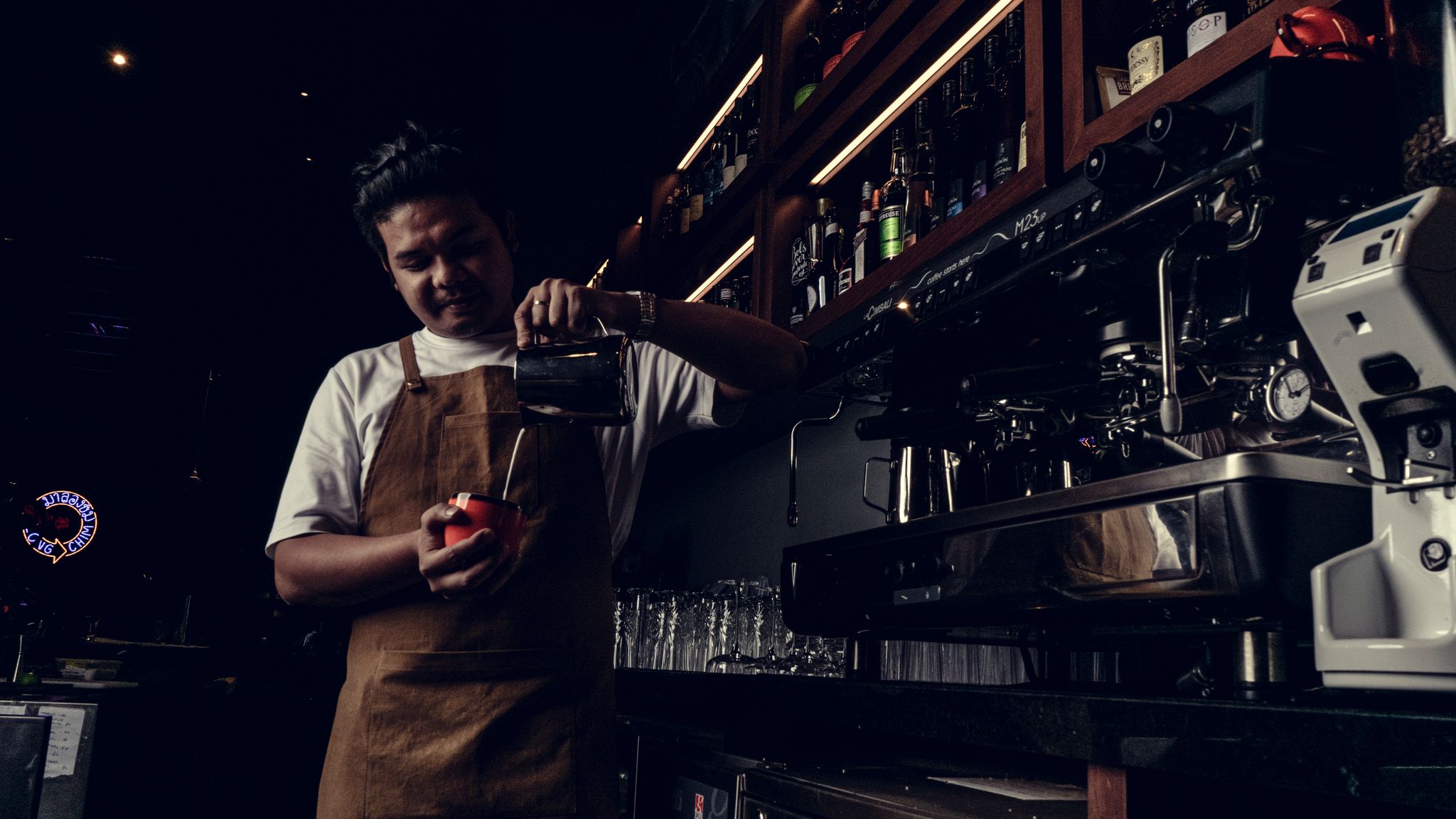Franchising a business internationally is a big step for any venture - but an acclaimed one as well, as it demonstrates that the business has a strong track record of success and profitability, which would allow it to expand to new markets. However, franchising a business shouldn’t be approached light-heartedly. From the legal side, to the understanding of international markets, and their specifications, franchising is an intricate operation, which requires stringent, step-by-step planning.
What is Franchising?
In its essence, franchise is a legally binding business relationship, which allows an owner to expand their brand and profit from it at multiple locations and markets.
When franchising a brand, the owner agrees to grant the franchisees the right to open a new location using the original brand trademark, business systems, training and suppliers. Franchisors benefit from ongoing fees paid by the franchisee, including royalties, initial fees and profits to go into opening more locations.
Overall, franchising can be very beneficial for both sides, though it does require time and precision to be set up. This is why working with a supporting company, which can guide in the development of the “Franchising Toolbox” including handling all the legal and setting up details, takes away both the stress and the possibility of error and delays that owners might face on their own.
“Being represented by the right development company will ensure that that toolbox is properly set, the market analysis in penetrating the market is thorough and will guide in vetting and bring forth the right franchisee for the brands when entering the US market.” says Ryan Durishin, Executive VP at TGP International. “On the operational side we assist the franchisor with key personnel recruitment, supply chain establishment, real estate selection criteria, etc.”
“Then there is the emotional side of the service.” - he continues. “Emotion plays a key role on the sales side of our support. After all, it is always a people first business. We have to embrace a prospects emotional connection to the brand as well as the business economics of it. Those emotions in the vetting process need to be properly conveyed to the franchisor and highlighted when they are being evaluated to be awarded or not awarded the rights to develop. If you miss the emotional opportunity of connecting your brand values to the end customer, you are missing a huge opportunity to ensure a successful business.”
Taking a business venture to the USA market is never a small task. With legal requirements taking anywhere between 90 days to 6 months, and the importance of finding that signature flagship real estate which will set the brand in motion, there’s a whole lot that a supporting team will need to do.
Here are the key steps and challenges to launching a new franchise to the USA market:
1. Identifying a Legal Support Team

The legal team a prospective franchisor chooses will provide support with a number of documents and requirements, which are compulsory when entering the US market, including:
-
A US based Franchise Disclosure Document
-
Creation of the franchise’s Operations Manual
-
Registration of Trademarks
-
Establishment of the Franchise Company
-
Registering and and Filing the FDD (Franchise Disclosure Document)
“The initial documents can take up to 90 days for registering the company. From finding an attorney, franchising etc, that can take 90 days. Then getting registered in some states can be anywhere from 3-6 months depending on more stringent regulations and registration requirements for international business. Then opening the location for the first flagship can take another 6 months to a year to find that perfect real estate for the flagship location. We are looking at around 18 months from start to finish” - clarifies Ryan
Following this, the legal support team will also be involved with the creation of a Franchise Sales Strategy, PR strategy, and a People Plan, as well as setting up a thorough staggered budget.
2. Working on the Major Questions that Will Affect Your Model

First of all, when launching a franchise, the franchisor should consider the Franchise Fee they would like to charge. This fee is the payment a franchisee will have to make to the franchisor for the right to use the company's trademark and aforementioned benefits of doing so. The franchisor needs to decide whether this will be an upfront fee or ongoing instalments.
Next, the franchisor needs to consider the Royalties (we recommend around 5-6%), the Terms and Conditions of the FA, which is the binding legal document that is signed by both the franchisor and franchisee and outlines the legal obligations and the relationship between the franchisor and franchisee.
Finally the franchisor will review details such as the size of territory to be awarded and the radius protection, the focus markets for the franchise and the type and length of the training program.
3. The Supply Chain Setup

Establishing a trusted supply chain can truly make the difference between the success or failure of a concept when introduced to a new market.
From the strategic sourcing and procurement to the distribution logistics and data management for business intelligence, each part of the supply chain has to be perfectly planned.
Strong procurement practices are a must for restaurants, as a big part of the budget will be allocated to sourcing the food. Competitive pricing, no unexpected increases and tight specifications are a must to ensure the quality and consistency of the brand.
Once the products are sourced, the next step would be the distribution and logistics management, which involves outlining and setting up the chain, which will cater to product shipment, warehousing and delivery.
Finally, if the supply chain is professionally orchestrated, the reduction of costs for inventory, transportation and long-term sourcing strategies will be felt directly by the franchisor, resulting in increased profits and long-term partnerships.
4. Defining the Criteria for Franchise Partners

To ensure profitability, finding the right franchising partner is key. This includes a careful evaluation of both sides; franchisors and franchisees will both assess whether the partner is compatible looking at a number of factors.
These can include but are not limited to:
-
Consistent track record of financial stability
-
Knowledge of the local (USA) market and its logistical and marketing specificities
-
Shared values and understanding of the brand and common strategic ambitions
-
Comfortable with the legal requirements on both sides
-
Evidence of previous work with a franchisees or franchisors
Overall, the selection will be based both on traceable information about the partner and the mutual feel of “understanding” and shared goals between the sides.
5. Understanding the US Market Model

As with every international franchise, being able to define the target market in the expansion country is a job that will likely require assistance due to the specificities of local knowledge.
The US market will naturally have key differences to other international markets but some of the main requirements of setting up a franchise remain:
-
Defining the unit size
-
The number of salary vs hourly employees
-
The design elements such as local or regionalising the menu
However, once it comes to establishing the brand’s presence and building the brand through PR and social channels, the specificity to the US market will become incredibly important.
The uniqueness of the concept has to align with American culture and expectations. Sustainability, variety, and cultural references are all important for the biggest market in the West.
“One of the keys is that you need to listen to the market - we tend to keep 20-30% of the menu local but also we bring out our uniqueness and introduce the brand. It doesn’t happen overnight. We’ll bring a portion of the concept so the locals can try it, get used to something they’ve never experienced before, and once we’ve became more established we really bring out the true essence of the brand” starts Ryan
“It has always been about gaining the loyalty of your local market. What has changed in the last 10 years is the social presence and social media. The UK and the USA are the biggest markets in terms of social media. That needs to play a massive part in targeting customers and brand representing.”- adds Emmet Loughran, Managing Partner at TGP International
The importance of brand reputation management through reviews and social media also can’t be undermined:
“Brands will say I have a presence on social media but not monitor it" - says Ryan - “they’ll have a YELP rating of 3, and you can be sure the customers will be looking at it. If the customers are going to a venue and not liking the atmosphere and not returning or giving bad reviews, then that will have a negative impact. It will prevent the brand from growing. Word-to-word recommendation has moved to the online space. The importance of social listening and brand reputation management is undeniable.”
5. An In-Depth Training Programme

Training is perhaps one of the most important steps of establishing a franchise. Many franchisees will come from different sectors with a variety of experience. An in-depth training programme will ensure that the new partners acquire both business management and technical skills to allow them to represent and expand the brand.
The training should be through and include both coaching and feedback for the franchisee. Some elements, which are compulsory are:
-
Review of the operating standards and procedures
-
Recruitment and employee management in line with the brand’s values
-
Business administration and finance management at a day-to-day level
-
PR and marketing training suitable for the local market
-
POS training
6. Ensuring Profitability

Of course the aim when launching any franchise is to ensure profitability at the end point. This is why hiring industry experts when entering a foreign market can really make a difference.
Whether it is the selection of the right real estate to open the flagship for the brand (TGP works with brands that do $800-$1000/sq.ft), the establishment of quality supply chain and scouting the key personnel, the right support company will be there every step of the way.
Focusing on COGS (Cost of Goods Sold) as a key performance metric is amongst TGP’s focal points. Looking at COGS is vital for any business as it helps determine the gross profit margin.
The COGS accounting principle measures the input costs that the business incurs. The cost of goods sold is then subtracted from the revenue to calculate the gross profit. This is how we can monitor the profitability of a business. If COGS increases, there will be less profit; and the lower the COGS, the higher the profits.
Finally, gaining consumer approval and separating the brand from the rest of the market is what TGP International specialises at. By setting up a tailored marketing strategy we ensure that we are launching an establishment of raving fans.
“The key to franchising is having support and when it’s done appropriately, that’s where you become sustainable and start becoming profitable quickly. When you’re constantly supported and managed by good infrastructure and organisation, it becomes much easier. This is what we are here for.” - adds Emmet.
-1.png?width=3330&height=698&name=TGP%20International%20Logo%20White%20(1)-1.png)



